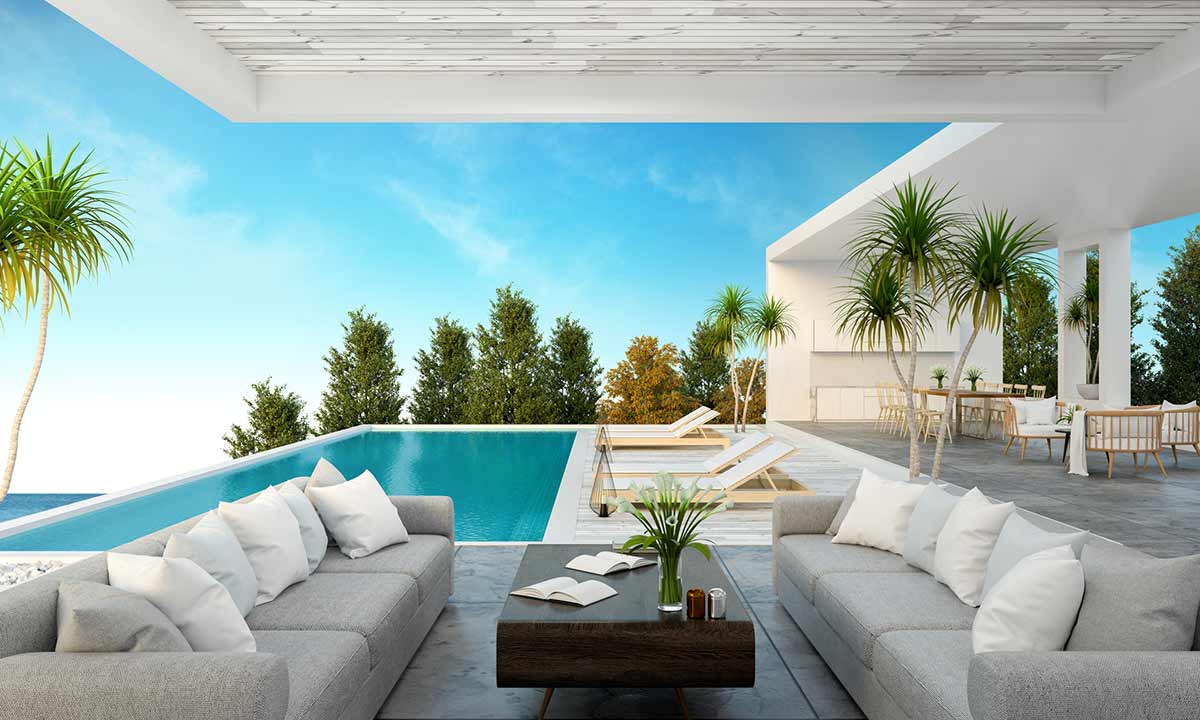Buying a home in the Caribbean may seem like a daunting process as there are many factors and options to weigh including where and what kind of property to buy. Plus, the requirements and processes for purchasing a home often vary by country in the Caribbean.
Here are five important steps to help simplify your journey to home ownership in the Caribbean.
1. Engage a local mortgage specialist or private banker to establish your purchase budget
Before you begin your vacation home search, ask yourself what you can afford and enlist the services of a local mortgage specialist or private banker who can work with you to determine how much you can afford. Knowing how much you can afford will allow you to shop for a home with confidence. A mortgage specialist can help outline the other costs — in addition to the down payment such as closing, legal, valuation and other administrative fees. They can also introduce you to a network of relevant local professionals such as realtors and lawyers who will offer specific advice to ensure you’re making informed decisions at each step.
2. Hire a local real estate agent to help you find the right property
Working with a local, qualified real estate agent can help you save time and money. They can help you focus your search and fully research the homes and communities that interest you most. You should also consider if you’d like to purchase a new build or re-sale property. With an extensive understanding of the marketplace, a real estate agent can help you save money by negotiating a fair price for a property. An experienced agent deals with the same contracts and conditions on a regular basis in the country you are buying and can help you understand the legal aspects of purchasing a home. They can also connect you to other experts such as home inspectors and tax professionals.
3. Enlist an attorney in the country you plan to buy for advice on costs, taxes, and other regulations.
Once you find the perfect home, it’s important to work with a local attorney who can advise you of the conditions specific to the country you plan to buy in. Most local banks will have an approved list of attorneys and appraisers to work with. You should work with an experienced attorney with knowledge of key factors including closing costs, tax implications and other requirements that vary among countries in the Caribbean. You will also want to work with a local estate lawyer in your home country who can help protect your asset in the case of a change in marital status or death.
4. Meet with an insurance agent to discuss coverage costs and protection.
Your new home will be a valuable asset and you will need to protect it and your belongings. The right home insurance policy will protect your against loss or damage and cover you in case someone gets hurt on your property. Typically, home insurance will cover only the main structure against damage. It’s also important to note that hurricane coverage is not automatically part of a home policy. You will have to specifically request it in order to fully secure your property against this annual threat. The level of insurance you choose — and the options you chose to add to your coverage – will depend on the type of property you own, the value of your belongings and where your home is located. You may also want to consider security systems–from fire alert systems to CCTV cameras and remote management—for additional protection.
5. Secure a property manager to manage your home when you’re not there.
Whether you are looking for someone to maintain your property in your absence or you’d like to rent it out as a potential source of income, managing either of these options remotely can be challenging. That’s why many non-residents who own property in the Caribbean hire property managers. A property manager may be an optimal solution, saving you both time and effort, but it’s important to choose the right one for the job. Some property managers are part of larger management companies, while others are individuals running their own small property management businesses. An individual property manager may be more likely to do things “your way” but may be lacking in some resources larger firms have. A management company may be more relevant if you plan to rent out your home and may better positioned to assess the true market value of your rental and find an appropriate rental price.
Starting your journey to home ownership in the Caribbean is exciting and can be simplified by engaging the support of qualified professionals. Working with a solid network including a mortgage specialist, realtor and attorney in the country which you plan to buy can help give you peace of mind and ensure the process goes as smoothly as possible.
Find out how RBC can help you on your journey to vacation home ownership in the Caribbean.
This article is intended as general information only and is not to be relied upon as constituting legal, financial or other professional advice. A professional advisor should be consulted regarding your specific situation. Information presented is believed to be factual and up-to-date but we do not guarantee its accuracy and it should not be regarded as a complete analysis of the subjects discussed. All expressions of opinion reflect the judgment of the authors as of the date of publication and are subject to change. No endorsement of any third parties or their advice, opinions, information, products or services is expressly given or implied by Royal Bank of Canada or any of its affiliates.



















